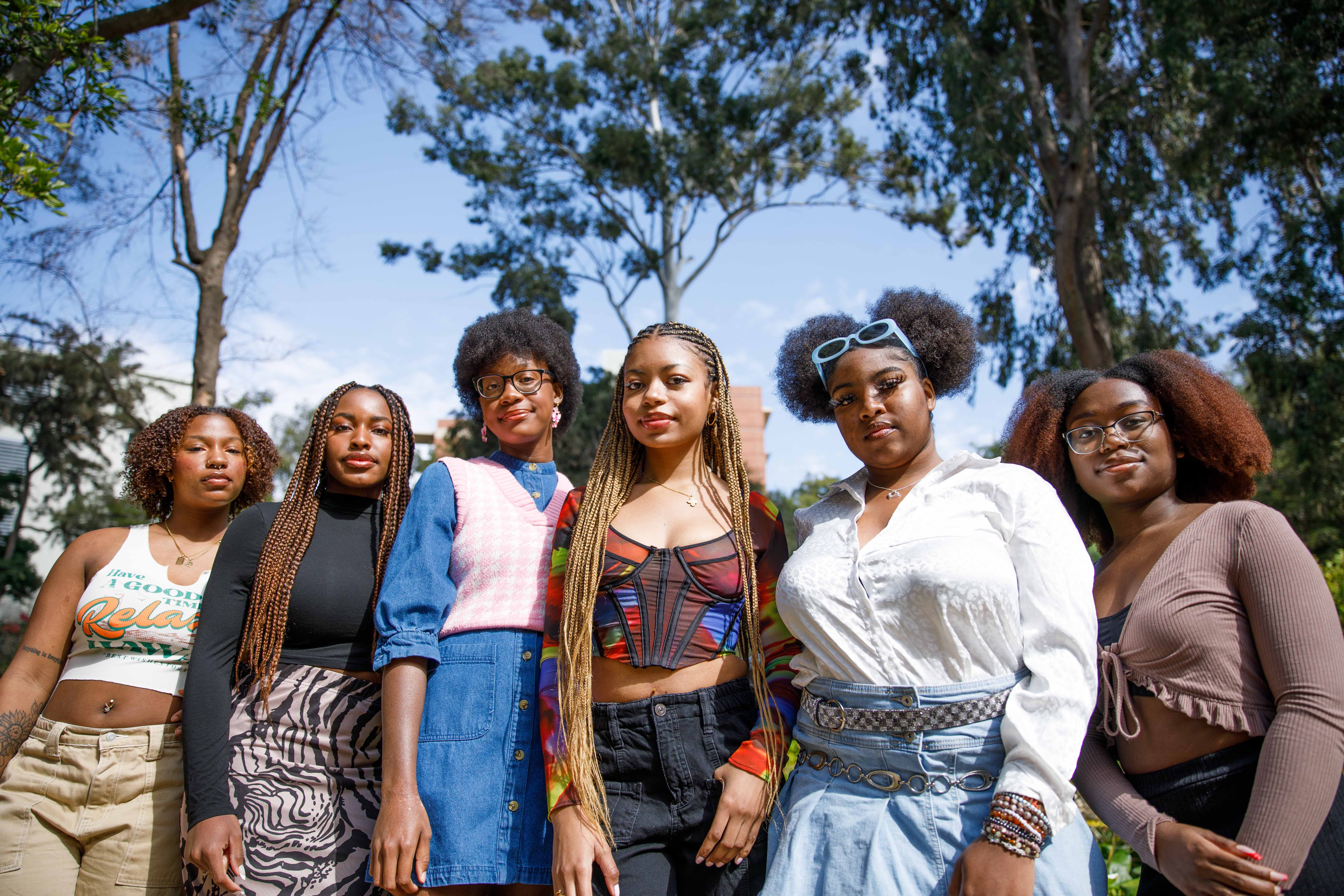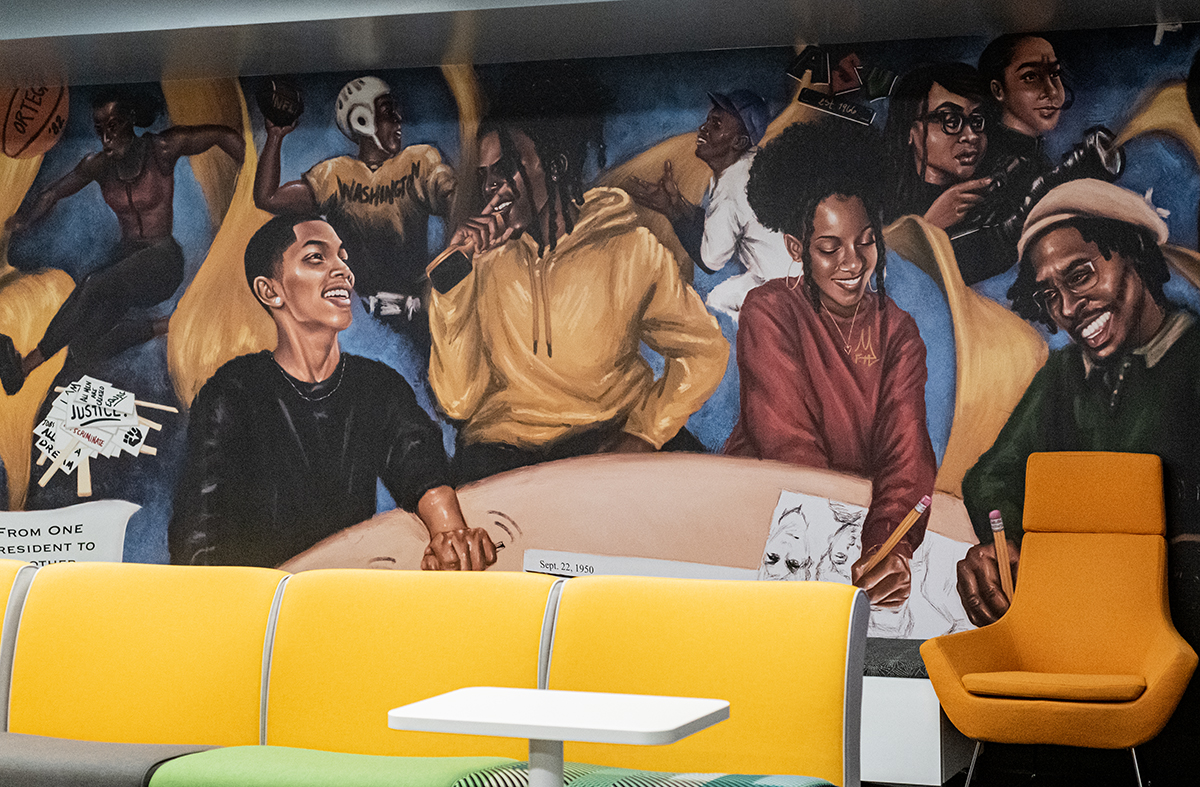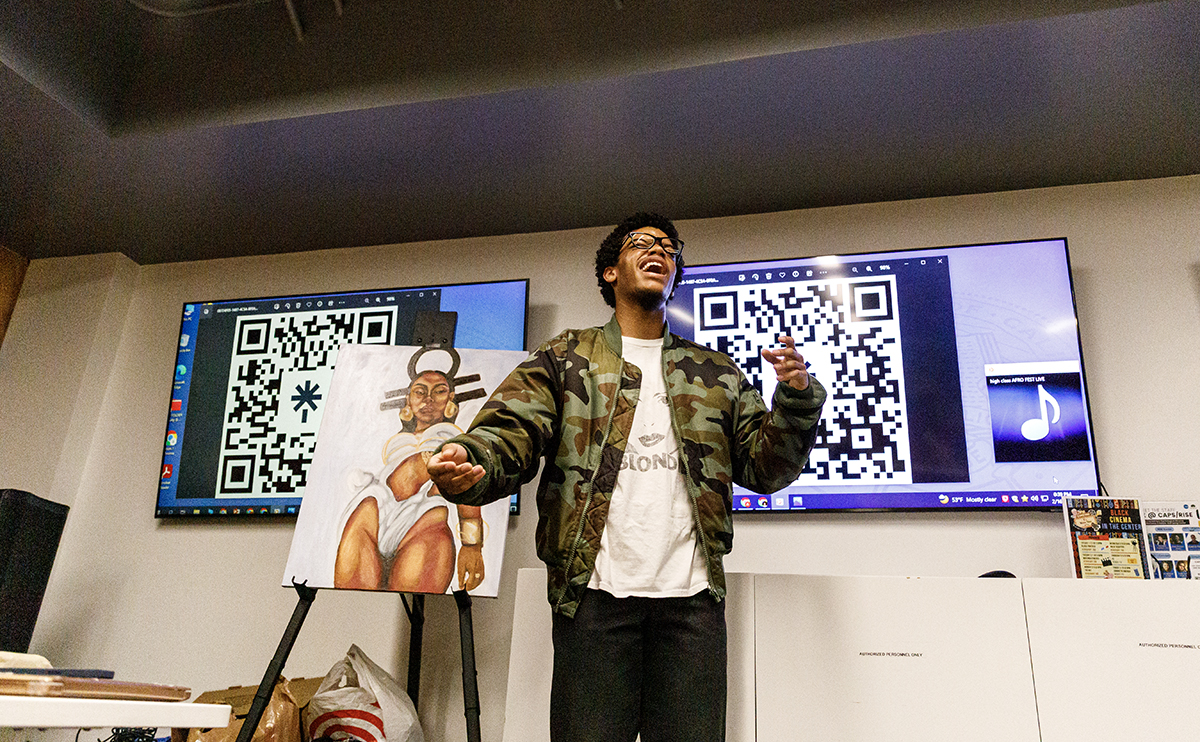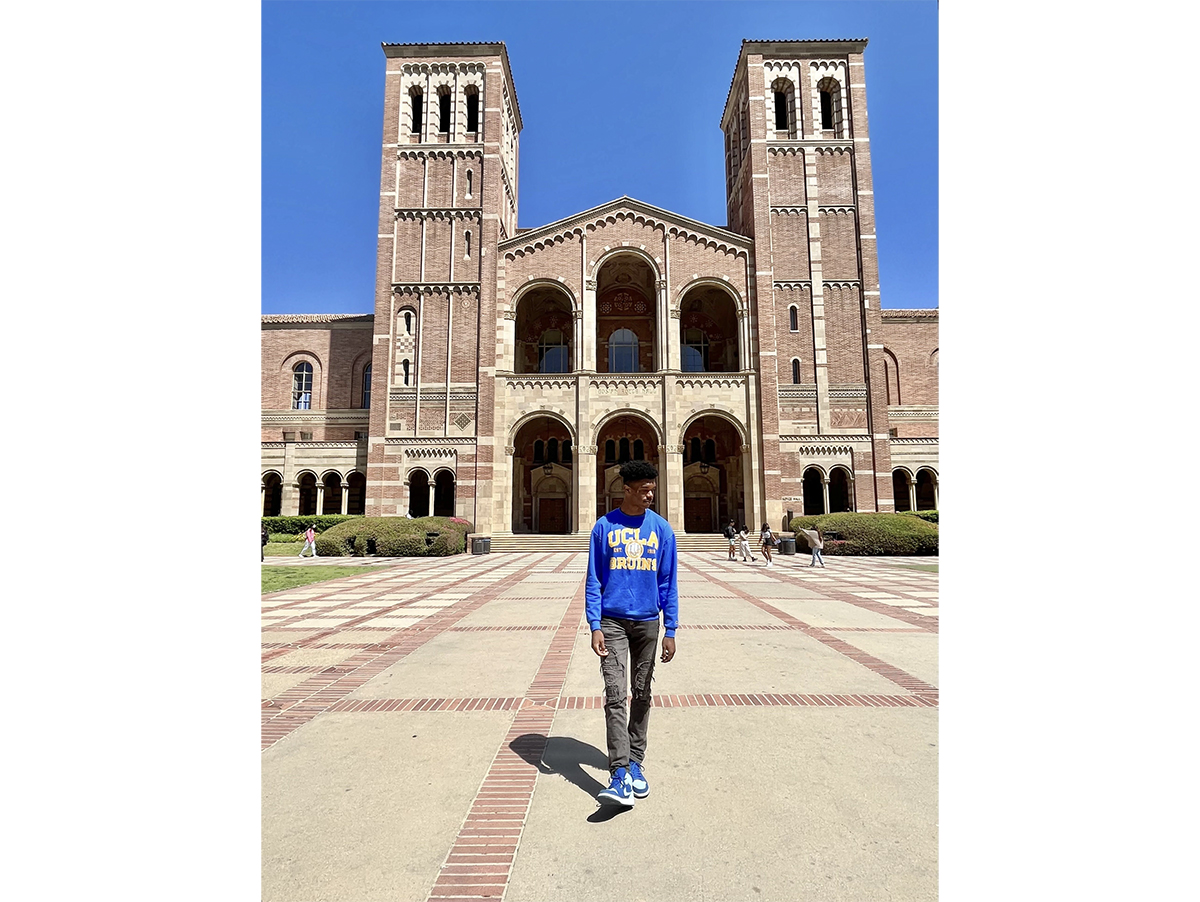Embracing resilience: Learning lessons from the Black freedom struggle

(Ko Carlos/Daily Bruin)
By Russell Ahmed
Feb. 6, 2024 11:59 p.m.
I was raised to aim high. My parents and older brother instilled within me a strong belief that does not place limits on what can be achieved.
Testing this belief through failure and shortcomings has forced me to prioritize a quality of mine that continues to develop: Resilience.
For example, after arriving at UCLA, I immediately decided to pursue a budding interest in neuroscience by applying to different research labs around campus. I looked into primary neuroscience literature and podcasts. I consulted personal contacts who knew a little bit about such a broad field.
I narrowed my interest to neuroscience, a field that explores the neural circuitry behind cognitive processes like decision-making, memory and reward-seeking.
After sending cold email upon cold email – some of which garnered no responses, others of which garnered flat-out rejections – I was lucky enough to be offered a position in the Wilke Lab in the Department of Psychiatry and Biobehavioral Sciences. The lab researches medial prefrontal neural circuits within mice that are important to effort-based decision making.
With the help of involved mentorship from postdoctoral scholars, experienced undergraduates and Dr. Scott Wilke himself, a renowned psychiatrist and neuroscientist, I have leaned into my once-budding – but now full-fledged – interest in neuroscience, intensifying my involvement since first joining with zero formal research experience.
Science, generally speaking, is a largely unknown frontier. The harsh reality is that there is not enough money to fund every research question that could be asked, so scientists must argue strongly in favor of their own.
I’ve learned from lab meetings and other classes that academia revolves around constructing a strong case for your research to receive government or private funding. With guidance from my lab mentors, I applied to two research fellowships.
I was rejected from both.
I intuitively questioned my effort after these rejections. Maybe I was not working hard enough, maybe I had not made sufficient progress during my time in the lab. Perhaps there was something wrong with my application – was it my personal statement? The project description?
I was frustrated. I told Dr. Wilke about the result, and his response elicited level-headedness that I was clearly lacking in at the moment. It was along the lines of, “Keep your head up, you’ll get the next one.”
It was simple, but the words of reassurance fostered immense clarity in my perception of the situation. I thought back to shortcomings and hardships of the past that felt, at the time, more consequential than this one: falling short of my goal to get recruited to college golf, getting rejected from my “dream school” and more. Even still, I was able to retain the strong sense of belief and purpose that I felt to be inseparable from my identity.
Thanks to Dr. Wilke’s message and support from my family and loved ones who have helped me develop a strong sense of self, I walked away from these rejections more motivated than I had been before applying to either of those research fellowships.
Reflecting on this, I was intrigued by the complex cognitive and psychological processes going on within myself – my interest in neuroscience is recursive, but that’s beside the point. If resilience in this context meant emerging out of an academically related shortcoming as a stronger and more motivated student for me, what does it mean for others?
For a few days, I lost touch with one of the strongest aspects of my persona. I wondered, does this illusory devaluation of self-assurance in the face of hardship occur in other contexts, too?
Stabilizing my mental state was a draining emotional experience. I wondered about how underserved, marginalized communities are required to do this level of emotional work in the face of harsh circumstances or realities that persist, including oppression and systemic and institutional racism.
To answer this question, I had the opportunity to speak with Dr. Byron Young, a community-oriented adolescent and child psychiatrist who works for the Los Angeles County Department of Mental Health while running his own business, DoingItWell.
“I think resilience is the ability to endure difficulty, stressors and kind of retain one’s sense of wholeness,” Young said.
Young added that resilience is defined by a strong ability to stay true to oneself despite inevitable setbacks or obstacles. In fact, something even stronger exists in underserved populations within the United States.
“Particularly thinking about under-resourced, marginalized communities – communities of color – I think about the term antifragility, which kind of takes resilience to the next level.”
Antifragility, a concept developed by Nassim Nicholas Taleb, outlines the unique process by which a system – in our case, humanity – grows more robust and resilient because of a stressor. In the case of marginalized communities, Young said the trait of antifragility is even stronger.
This made me think back to my own experiences and hardships. I am a child of two immigrants from Bangladesh, and I realized that my tendency to set lofty goals for myself and think highly of my capabilities is more of a privilege than anything else.
Neither I nor members of my family have necessarily had to overcome the systemic measures put in place to suppress the upward mobility of Black Americans. The legacy of slavery, redlining, Jim Crow laws and present-day gerrymandering are realities that I do not experience as a South Asian man.
Importantly, I see that our ability to thrive – as nonwhite Americans who are not systemically marginalized or underserved – has benefited from the Black freedom struggle. There is no doubt that the efforts of Malcolm X, Martin Luther King Jr., Angela Davis and bell hooks have contributed to a sense of inclusiveness and equality that allows people of my own culture to thrive.
This is not to diminish the hardships that South Asian Americans have faced in the U.S. Rather, our propensity to aim high and our sense of robust resilience is in part due to the strong antifragility exhibited by Black Americans.
Young added that Black love in America is ubiquitous – to endure the ingrained hardship within our institutions, it has to be.
While I am not Black, this love is still tangible. It has instilled within me a newfound appreciation for the fight that Black communities continue to fight because they are fighting for me, too.
“Black love is the thing that no matter what your race is, you can connect with, because it’s the kind of love that reminds you that love is this powerful force that can exist beyond all things, even beyond hate, beyond dehumanization,” Young said. “There’s something quite beautiful about being Black in America, and still being able to love despite such an unloving existence from the root to current day struggles.”
It was the fight of Black Americans that allowed my parents to own a home and send me and my brother to college. It is a fight rooted in love and a desire for equality for everyone.
These revelations prompted new insights about my sense of purpose, resilience and reaction to shortcomings or hardships. I learned that having a narrow, tunneled sense of individualism is not conducive to strong levels of antifragility – not for yourself or anyone else.
Rather, one must love oneself to dampen their insecurities and allow oneself to be more compassionate to others – not only those one loves, but to everyone around them.
“At the individual level, if we could all love ourselves better, I think we’d be less likely to put up with the BS that comes with, you know, the hardships of of all these ‘-isms’ and that kind of thing, but also we’d be less likely to display those ‘-isms’ towards others,” Young said.
In this way, honing one’s sense of resilience is not a byproduct of one’s ambitions or sense of self-confidence. Maybe a few years ago, I would have taken full ownership of my ability to get knocked down and get back up. But my ability to stay resilient and possibly even exhibit a sense of antifragility in my own right is directly tied to the ongoing fight against injustice. All of my academic and career goals – and the likelihood that they might not materialize – are a smaller part of a bigger picture.
Simply put, the Black freedom struggle for justice and equality allows me the privilege to have high goals of my own.
Resilience, antifragility, persistence – whichever label you choose – are each cultivated through a strong compassion for oneself and those that surround them. They stem from a shared understanding and empathy for one another.
This is when we are our most resilient selves.
Having been inspired by Black love and my enlightening conversation with Dr. Young, I have learned to temper my intuitive, frustrated response to rejection – to find peace within hardships and be grateful for the broader societal efforts that allow me to test the limits of my own potential.






